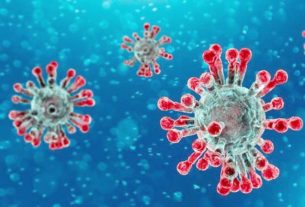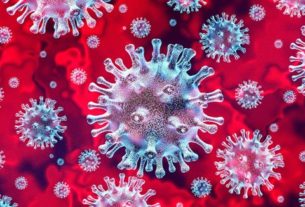7TH AUGUST 2020
The Corona Virus (COVID-19) pandemic situation remained grim globally, with the confirmed cases across the world soaring to 1,89,02,735 and the death toll rising to 7,09,511 in the 216 affected countries and territories, according to the latest update from the World Health Organization (WHO).
Globally, American region continued to be the worst-hit with 1,01,35,322 confirmed cases and 3,76,606 deaths. Europe came next with 35,13,219 confirmed cases and 2,15,640 deaths. South-East Asia region’s tally stood at 24,28,584 confirmed cases and 50,571 deaths.
Eastern Mediterranean region reported 16,10,798 confirmed cases and 42,403 deaths. African region registered 8,60,507 confirmed cases and 15,652 deaths. Western Pacific region recorded 3,53,564 confirmed cases and 8,626 deaths. WHO Risk Assessment at global level remained very high.
As the continent nears one million cases, WHO is increasing COVID-19 support to hotspot countries in Africa. Altogether more than 40 public health experts are expected to provide surge support, working with national and provincial counterparts on key areas of the response.
The Pan-American Health Organization/WHO Regional Office for the Americas/ has drawn upon the Strategic Fund for Public Health Supplies to procure and distribute millions of COVID-19 diagnostic kits, Personal Protective Equipment (PPE), and other essential health supplies to countries throughout the region. Thus far, over 10 million PCR diagnostic tests have been sent to six countries. The Strategic Fund also helped finance PPE including face shields, gloves, goggles, gowns, masks and respirators for 26 countries in the region.
Environmental surveillance by
testing of waste water for evidence of pathogens has a long history of use in
public health. WHO has published a scientific brief on how this form of
surveillance is being used in the context of the ongoing COVID-19 pandemic.
Developing a vaccine against
COVID-19 is one of the most pressing challenges of our time. WHO has published
two new documents on the COVID-19 Vaccines Global Access Facility. One outlines
global procurement for COVID-19 vaccines and the other focuses on ensuring
accelerated vaccine development and manufacturing.
Today’s ‘Subject in Focus’ provides a summary of the 4th meeting of the IHR Emergency Committee for COVID-19. The Committee noted the anticipated lengthy duration of the COVID19 pandemic, and the importance of sustained community, national, regional, and global response efforts.
Subject in Focus: 4th meeting of the IHR Emergency Committee for COVID-19
The fourth meeting of the International Health Regulations (IHR 2005) Emergency Committee for COVID-19 was convened by the WHO Director-General on 31st July 2020.
The Director-General welcomed the Emergency Committee, highlighted the advances in global understanding of the SARS-CoV-2, the virus that causes COVID-19, since the declaration of a Public Health Emergency of International Concern (PHEIC) on 30th January 2020, and outlined key areas where further attention by the Emergency Committee was needed.
The Emergency Committee highlighted the anticipated lengthy duration of the COVID-19 pandemic, noting the importance of sustained community, national, regional, and global response efforts. It encouraged all individuals, in particular young people, and communities to continue to play an active role in preventing and controlling COVID-19. In support of this, the Emergency Committee recognized that States Parties should enable and support communities and individuals and thus build trust in governments’ response measures.
Following the advice of the Emergency Committee, the Director-General determined that the COVID-19 pandemic continues to constitute a PHEIC. He accepted the revised advice of the Emergency Committee to WHO and issued the Emergency Committee’s advice to States Parties as Temporary Recommendations under the IHR (2005).
The areas for WHO advice and the Temporary Recommendations are as follows: Learning and sharing good practices on pandemic response; Coordination, political commitment and solidarity to support global response; Sustained evidence-based response for the long-run to reduce risk of response fatigue; Surveillance, testing and contact tracing; Research on the virus and on the effectiveness of response measures; Risk communication, community engagement and management of infodemics; Vaccines and therapeutics; International travel; and Essential health services.
The Emergency Committee will be reconvened within three months or earlier, at the discretion of the Director-General. The Statement on the fourth meeting provides further details on proceedings and advice provided by the Emergency Committee. (eom)



